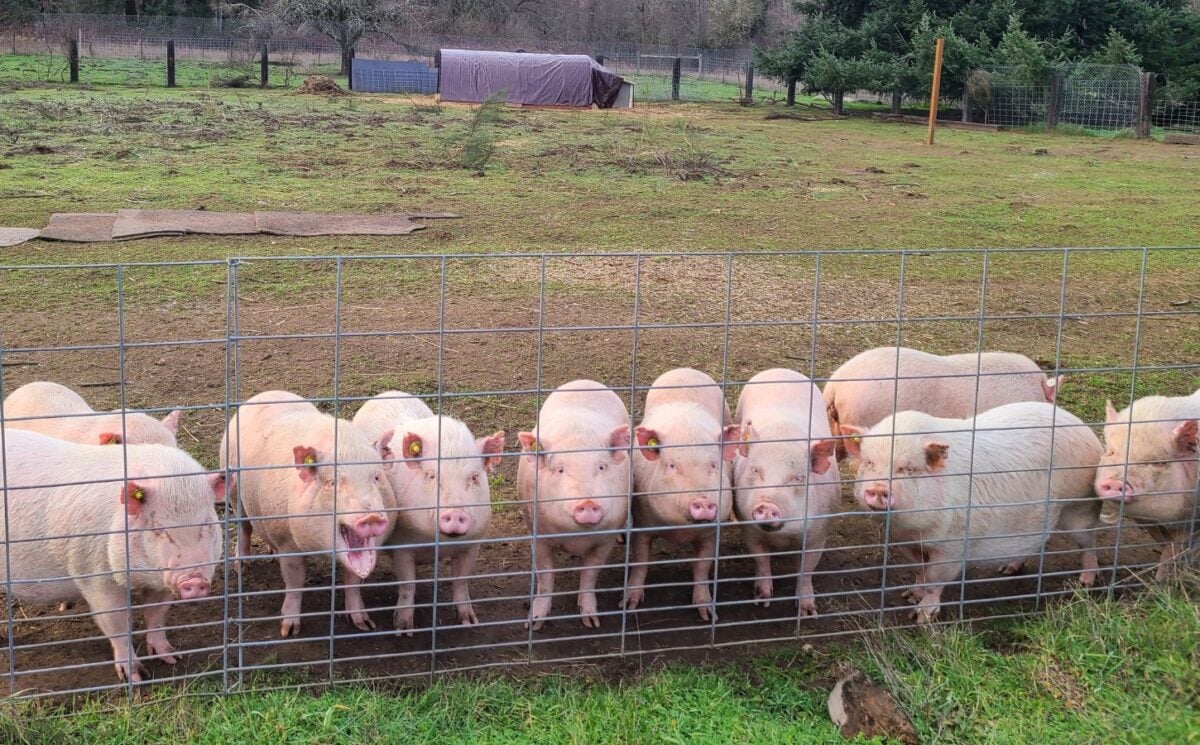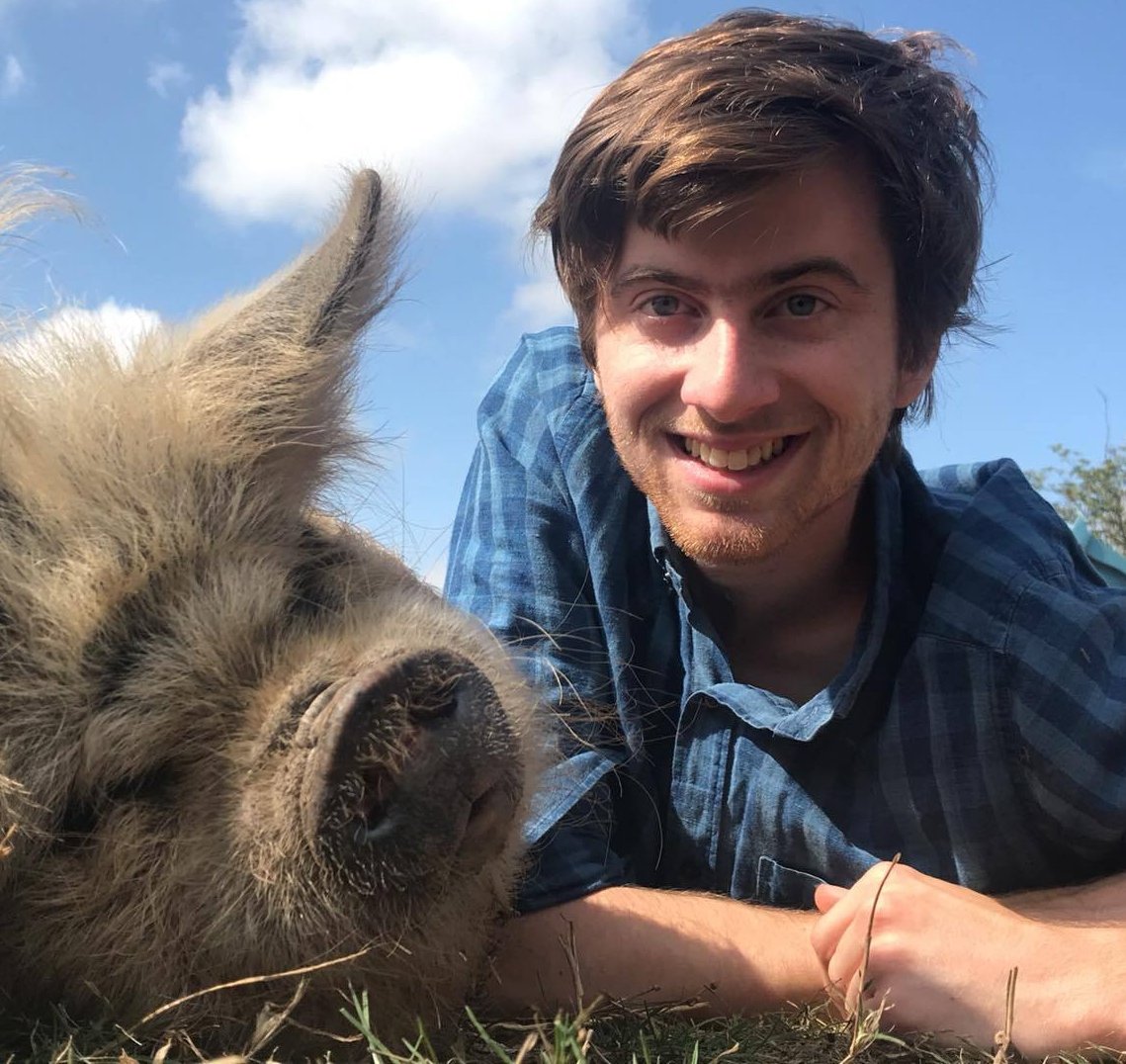Ten pigs have been liberated from an animal testing laboratory in Colorado, animal sanctuary Heartwood Haven has announced.
The biomedical facility had been holding the pigs, who are all about two years old, for medical testing.
“At Heartwood Haven, we believe that every life matters, and these rescued pigs will now have the opportunity to experience kindness and compassion after their challenging past,” Kate Tsyrklevich, co-founder and director of Heartwood Haven, told Plant Based News (PBN).
Animal testing on pigs
Göttingen “minipigs” are used extensively for medical research. The smallest breed in the world, they weigh about 75 pounds when fully grown.
According to one academic paper, minipigs are “one of the most important laboratory animal[s]” because their “anatomical and physiological properties are similar to human[s].” Pigs have similar skin, skeletons, teeth, gastrointestinal tracts, pancreas, livers, kidneys, lungs, and immune status as humans.
As such, researchers often use them as models for humans. They use pigs too in pharmacology and diabetes research. Tens of thousands of pigs worldwide endure tests in research labs.
“We don’t know exactly what was tested on them,” Tsyrklevich told PBN. “But the pigs had matching scars on various parts of their bodies.”
According to Tsyrklevich, some of the pigs had their backs shaved. Several had burn scars.
“Some even had sharpie outlines around them. Other pigs had matching scars on their shoulders that all had the same shape. All of the pigs also had notched ears, which is common in industrial farming.”
The animal testing industry
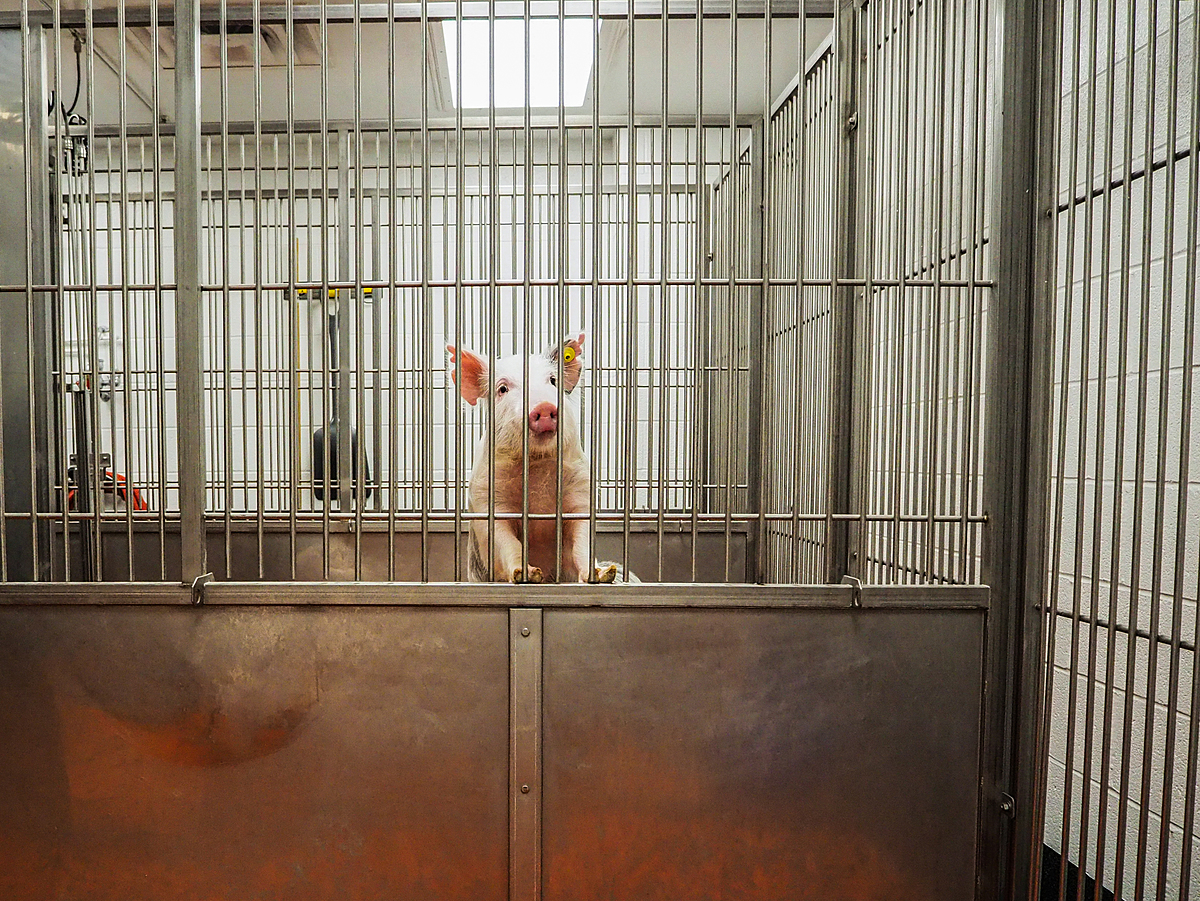
A wide variety of tests use animals for cosmetic, pharmaceutical, academic, and military research. More than 115 million animals are used in experiments around the world each year.
Experiments involving animals happen behind closed doors under a veil of secrecy. This means that the public has little idea what researchers are actually doing to the animals.
“When we get animals from the biomedical research industry, we don’t get much information about the conditions that they come from or what was tested on them,” said Tsyrklevich. “What we do know is that if we don’t take these animals, the labs euthanize them.”
Animal testing is also regarded by many to be ineffective. In pharmaceutical testing, around 90 percent of drugs that deliver promising results in animal tests subsequently fail human trials.
Sanctuary for the rescued pigs
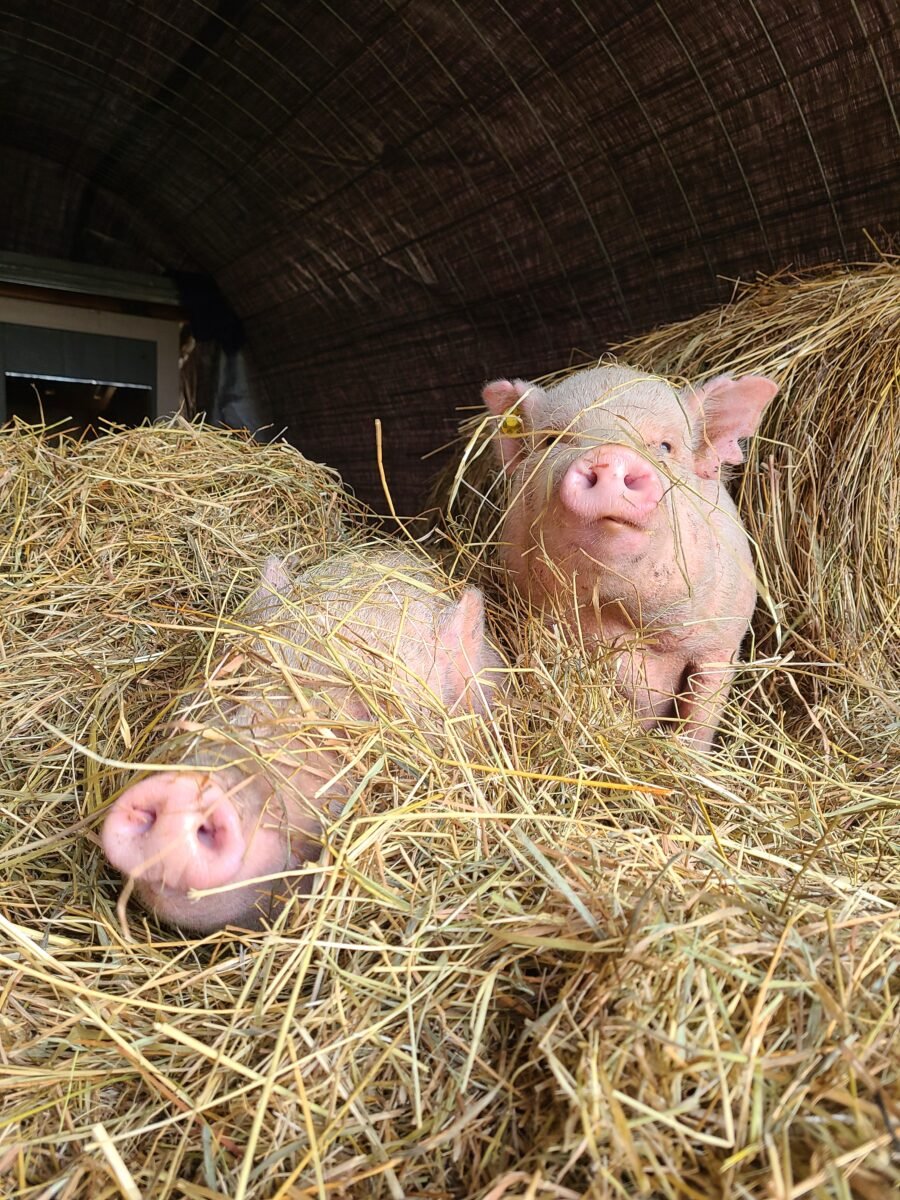
The rescued pigs will now be able to live in peace at Heartwood Haven. The sanctuary, which was founded in 2017, is based in Roy, Washington, and saves hundreds of lives every year. Its residents live “life on their terms.”
“The pigs are all getting along great,” said Tsyrklevich. “They cuddle together, they love to explore their habitat, and they love to argue with their neighbor pigs. Basically, they are learning normal pig behaviors.”
In the laboratory, the pigs had “never been outdoors or had been in direct contact with other pigs,” according to Tsyrklevich.
“It took them about a week to get used to being with other pigs and learning the routine at the sanctuary. It also took them about a week to rest and relax.”
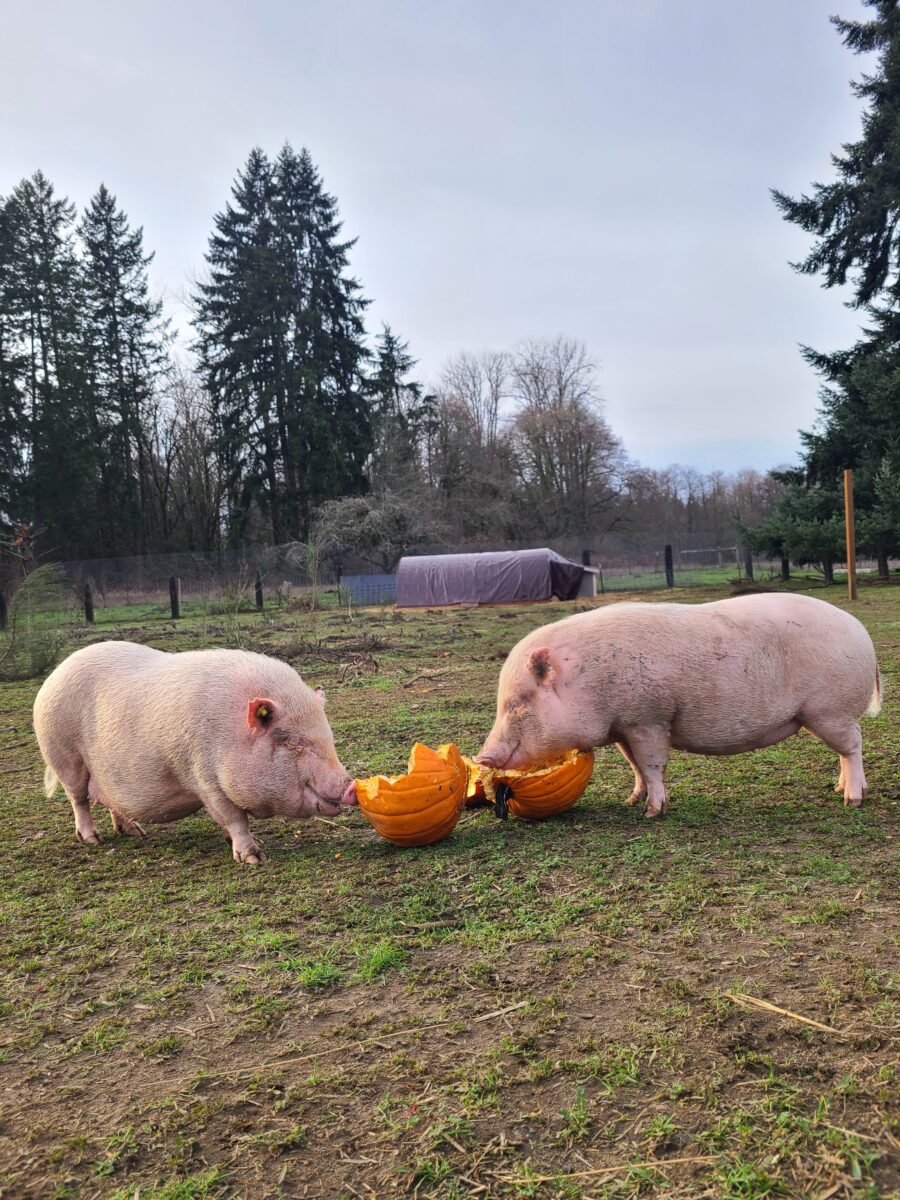
At Heartwood Haven, the rescued pigs will receive the best medical care and nutrition, as well as love that they had never previously experienced.
“Many times, when we rescue animals from either factory farms or research facilities, the animals sleep for about a week straight because they have been under so much stress before,” said Tsyrklevich.
“Our mission is to be a sanctuary for those who cannot speak for themselves.”
